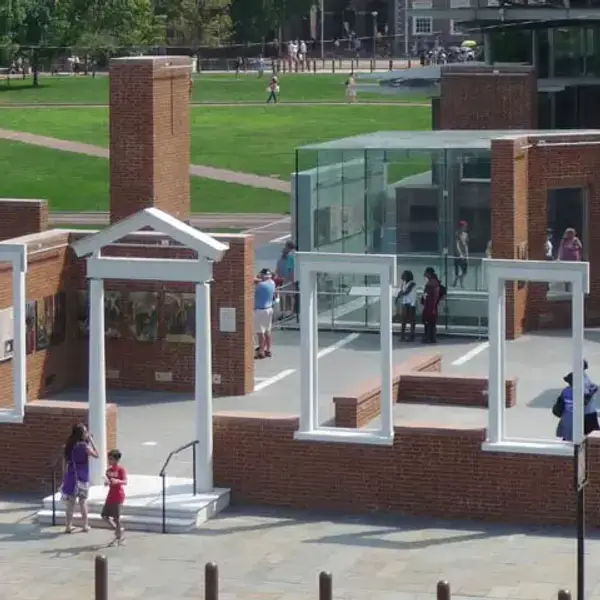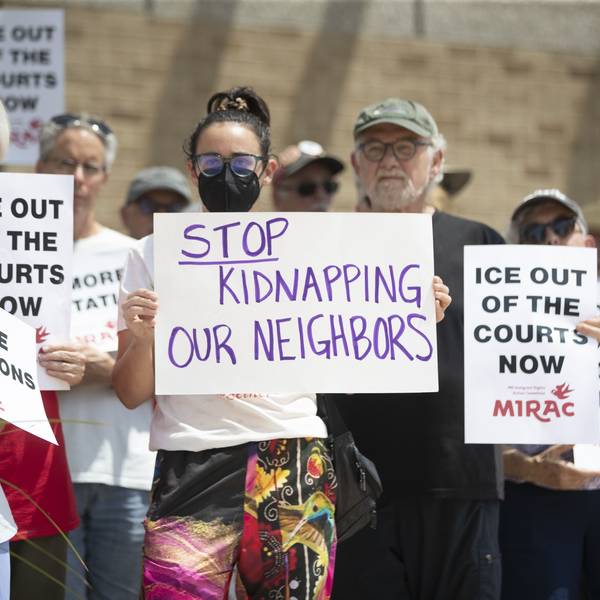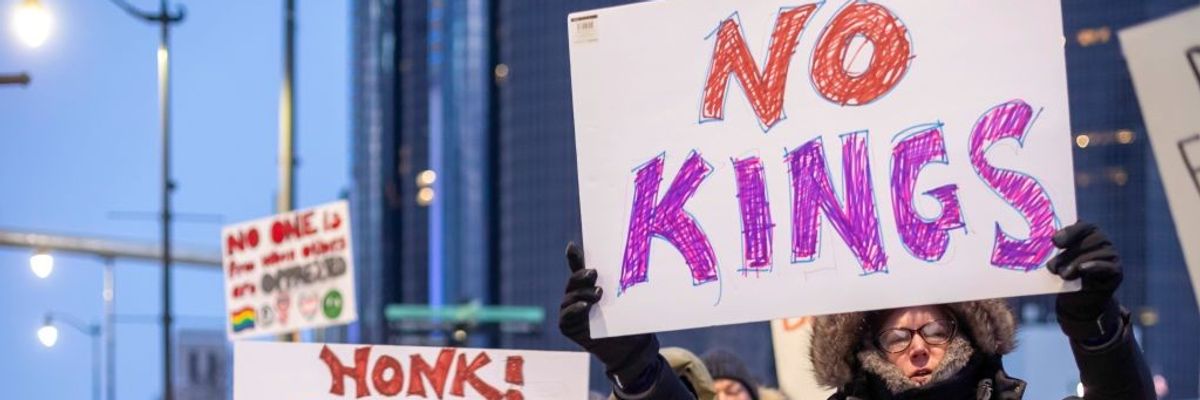A federal judge on Thursday reinstated Gwynne Wilcox, a Democratic member of the National Labor Relations Board, and suggested that U.S. President Donald Trump's attempt to fire her was an example of the Republican testing how much he can exceed his constitutional powers.
Wilcox filed a federal lawsuit in February, after Trump ousted her and NLRB General Counsel Jennifer Abruzzo. On Thursday, U.S. District Judge Beryl Howell—who was appointed by former President Barack Obama to serve in the District of Columbia—declared Wilcox's dismissal "unlawful and void."
"The Constitution and case law are clear in allowing Congress to limit the president's removal power and in allowing the courts to enjoin the executive branch from unlawful action," Howell wrote in a 36-page opinion. She also sounded the alarm about arguments made by lawyers for the defendants, Trump and Marvin Kaplan, chair of the NLRB.
"A president who touts an image of himself as a 'king' or a 'dictator,' perhaps as his vision of effective leadership, fundamentally misapprehends the role under Article II of the U.S. Constitution."
"Defendants' hyperbolic characterization that legislative and judicial checks on executive authority, as invoked by plaintiff, present 'extraordinary intrusion[s] on the executive branch,' ...is both incorrect and troubling," the judge wrote. "Under our constitutional system, such checks, by design, guard against executive overreach and the risk such overreach would pose of autocracy."
She stressed that "an American president is not a king—not even an 'elected' one—and his power to remove federal officers and honest civil servants like plaintiff is not absolute, but may be constrained in appropriate circumstances, as are present here."
"A president who touts an image of himself as a 'king' or a 'dictator,' perhaps as his vision of effective leadership, fundamentally misapprehends the role under Article II of the U.S. Constitution," Howell asserted. "In our constitutional order, the president is tasked to be a conscientious custodian of the law, albeit an energetic one, to take care of effectuating his enumerated duties, including the laws enacted by the Congress and as interpreted by the judiciary."
The judge cited a widely criticized February 19 social media post from the White House, which features an image of Trump in a crown, with text that states, "Long live the king."
"The president seems intent on pushing the bounds of his office and exercising his power in a manner violative of clear statutory law to test how much the courts will accept the notion of a presidency that is supreme," Howell warned. "The courts are now again forced to determine how much encroachment on the legislature our Constitution can bear and face a slippery slope toward endorsing a presidency that is untouchable by the law."
The president's attempt to fire Wilcox halted federal labor law enforcement in the United States. AFL-CIO president Liz Shuler celebrated Howell's ruling in a Thursday statement, saying that "more than a month after Trump effectively shut down the NLRB by illegally firing Gwynne Wilcox, denying it the quorum it needs to hold union-busters accountable, the court ordered Wilcox immediately returned to her seat, allowing the NLRB to get back to its essential work."
"The court also sent an important message that a president cannot undermine an independent agency by simply removing a member of the board because he disagrees with her decisions," she said. "Working people around the country count on equal justice and fair decision-making from an independent NLRB—and today, because of Wilcox's commitment to the mission of the NLRB and her refusal to stand by as Trump illegally removed her from the board, the NLRB can get back to work."
Wilcox isn't the only federal worker who has challenged the president's power to fire her. As Politico detailed:
On Thursday, a federal workplace watchdog fired by Trump—Special Counsel Hampton Dellinger—dropped his legal bid to reclaim his post after a federal appeals court permitted his termination. Cathy Harris, a member of the Merit Systems Protection Board, which oversees the grievance process for many federal employees, is also resisting Trump’s effort to remove her and was reinstated last month by a federal judge.
The Supreme Court likely will soon weigh in on Congress' ability to insulate executive branch officials from being fired by the president without cause. With Dellinger's decision to drop his legal fight, Harris' case appears likeliest to reach the high court in the near-term. It’s possible Wilcox's case will get folded into that ongoing fight.
The nation's highest court has a right-wing supermajority that includes three Trump appointees, though they have at times ruled against the president—including on Wednesday, when five justices refused to overturn a lower court order about foreign aid.




